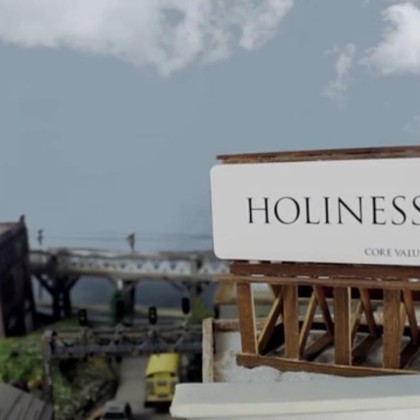In the early days of the Salvation Army’s existence, there was an American born man named Samuel Logan Brengle, whose name has become almost as synonymous with The Salvation Army as William Booth’s.
Brengle became a Christian during a revival meeting as a teen, and in his adulthood became a Methodist preacher. He was an outstanding scholar, being moulded into one of the Methodist’s most important preachers, when everything radically changed. William Booth was visiting the U.S. where Brengle heard him preach at an open-air service; there was no going back!
Brengle was so enamored by Booth and The Salvation Army that he decided to travel to England to meet Booth and become a Salvation Army officer. Booth didn’t like or trust Brengle, calling him a ‘dangerous man’ who needed to be his own boss, refusing to adhere to the discipline of the organization. So Booth appointed him to shine the boots of his fellow cadets thinking this would get rid of him.
This is where Brengle’s reputation as a servant started. Rather than think the job was beneath him, he was reminded that Jesus didn’t think that washing his disciple’s feet was anything but the right thing to do, so neither would he. So, Brengle shone his fellow cadet’s boots with joy in his heart and without ever once complaining.
Brengle married, moved back to the US and rose through the ranks, gaining a reputation along the way as a ‘prophet of holiness’. Late in his career he was appointed to the inner city in Boston where he took a brick to the head from a drunken individual. During the eighteen months that he was laid up from that incident, Brengle wrote his most famous book entitled ‘Helps to Holiness’. I highly recommend it.
Because of Brengle’s example and his writings, holiness remains a central core value to the identity of The Salvation Army.
As the narrator says in the above video, ‘holiness is not a destination but a journey’. We’re always on the road to holiness.
As we continue with our theme for 2015, focusing on our ten organizational core values, this month we focus on the value of ‘Holiness’. What does it mean to strive for holiness as a Salvation Army employee/officer/volunteer/supporter? For me it means remaining to be willing to get on my knees and shine someone else’s boots, to wash someone’s dirty feet, to befriend someone who is hard to like, to provide shelter to someone without a home and being unwilling to ever think that any task is ‘beneath’ me. Holiness is also about taking times of silence, of solitude, of prayer and meditation and listening to/with our God, and reflect on the things that we’d like to improve in our lives.
In Ezekiel 9:4 we see another definition of holiness. It is those who ‘grieve and lament over all the detestable things that are done in the world’. According to this passage, it’s not what church you do or don’t attend. It’s not the songs that you do or don’t sing. It’s not the clothes you wear or the car you drive or the place where you live. It’s whether or not the things of this world that are unjust cause us pain; cause us to grieve. It’s whether or not we choose to act on those things.
Let’s continue to choose to act on those things that are unjust and strive for holiness as we continue to be ‘The Hand of God in the Heart of the City’.
Peace,
Dion Oxford – Director of Mission Integration
Holiness from Salvation Army Ethics Centre on Vimeo.
Prayer of Holiness
Holy God
The Israelite prophet Micah said:
“What does the Lord require of you? Only to act justly, love mercy and to walk humbly with your God.”
God of mercy and source of justice,
pour on your people such love and compassion that
we cannot remain silent,
we cannot tolerate injustice and poverty,
We grieve and lament all the detestable things of the world
As your grace fills our hearts
so may we be stirred into action
May we become more holy and demonstrate your holiness
So as to reveal your love for all the world
and for all creatures that live and move on this earth.
Amen
adapted from here

